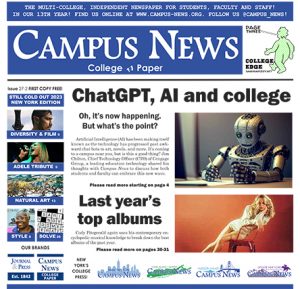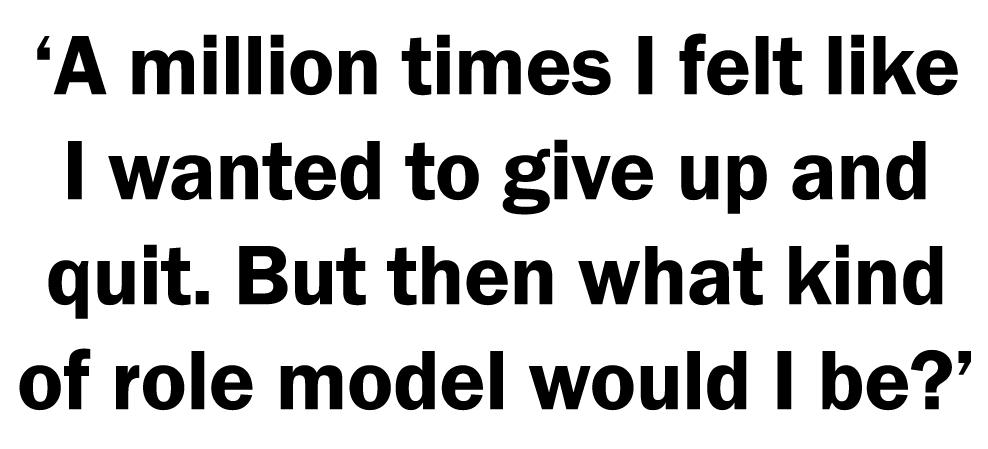By Nancy Scuri
Campus News
Artificial Intelligence (AI) has been making itself known as the technology has progressed past awkward chat bots to art, novels, and more. It’s coming to a campus near you, but is this a good thing?
Jim Chilton (pictured), Chief Technology Officer (CTO) of Cengage Group, a leading education technology shared his thoughts with Campus News to discuss how both students and faculty can embrace this new wave. (The interview has been edited for clarity and length.)
CN: What do you see as the future of AI in higher education?
JC: We’re still learning as much about AI and, in particular ChatGPT, as it is about us. We know it has the potential to revolutionize many aspects of life like how the internet changed how we do almost everything. There are certainly opportunities for AI to support learning – both for instructors and students. For example, it can help level the playing field and improve the 1-to-many ratio an instructor faces in the classroom with students who all have varying abilities and knowledge levels. For students, AI can provide individualized support, one-on-one tutoring, and provide explanations on how to solve problems or offer examples to better understand complex concepts. AI has the potential to disrupt traditional methods of learning in higher education and help students who may be struggling.
CN: What challenges are colleges and universities facing right now with emerging AI technology?
JC: As we are still learning a lot about how AI like ChatGPT can be used in education, there is certainly a lot of worry and skepticism about how it could be used by students to cheat or plagiarize, undermining its credibility and usefulness in education. If technology like this is used in the wrong ways it hampers the development of important skills like critical thinking, effective writing and problem-solving – all of which are needed for success in academia and the workforce. These challenges could limit the adoption of Chat GPT and other powerful tools.
CN: How would you respond to concerns of AI causing a decline in academics and critical thinking?
JC: Similar fears were shared by many when the calculator, internet and laptop computers were introduced to the classroom. Many thought this would lead to a decline in student knowledge when in reality the problems being worked on by students actually got more complex.
We have to understand that even if schools ban the use of AI, students will still have access to it in other parts of their life, and likely eventually in their job. Rather than fear new technologies, we should spend time and energy learning how we can best leverage them and what guardrails are needed. The reality is cheating has existed well before AI and will continue regardless of it. Perhaps the question is not how can we ban AI but how can we use AI to also help detect cheating? How can it also accelerate the review of materials and grading and actually free professors up to spend more time one-on-one with students, knowing the instructor-student relationship is one of the most important factors in student success? How can we teach students not to focus on “getting the grade” but to focus on developing their own knowledge and skills? In the end, critical thinking is not the direct result of an assignment for students to complete but rather how students decide to respond to their learning, their work and their engagement.

CN: What are your thoughts on AI and the Digital Divide?
JC: Access to the internet and computers, along with smart phones is pervasive throughout developed countries, however we still have substantial room for improvement. Many students still don’t have access to devices or reliable internet. Since most AI tools are tied to the internet, computers, phones, and tablets, AI could further the divide among the haves and have nots if we don’t do more to ensure equitable access to learning tools. This is further exaggerated as some public schools prevent access to AI tools to the very students who are most likely to use computers while in the library or in the classroom. I think restrictions by public schools on AI will increase this divide even further. Current and future student-focused AI tools should be available publicly to all and AI companies should find other ways to monetize the business without putting a burden on students.
CN: What is the role of AI in education today? How can AI facilitate learning?
JC: AI doesn’t play a major role in education today; however, it has the potential to make an enormous impact in the future if adopted by more major colleges and universities. Students and instructors are aware of AI technology, however, fierce competition in the education technology market, could limit their adoption.
I believe that AI has the power to accelerate learning; using these tools can help reinforce difficult concepts with specific examples and answer questions for students immediately, eliminating the delay between submission and feedback. With the introduction of this technology, what instructors expect of students may need to shift. Rather than requiring them to write a summary of a book, ask how the book relates to their life, family, or situation, something that AI would not have the ability to know. This approach allows students to see themselves in the content and encourages deeper thought and analysis.
For more information on Cengage Group and educational technology, go to www.cengagegroup.com
 Nancy Scuri is a freelance writer and editor with over fifteen years of teaching experience at the college level. You can reach her at nancyscuri.substack.com.
Nancy Scuri is a freelance writer and editor with over fifteen years of teaching experience at the college level. You can reach her at nancyscuri.substack.com.







Facebook Comments